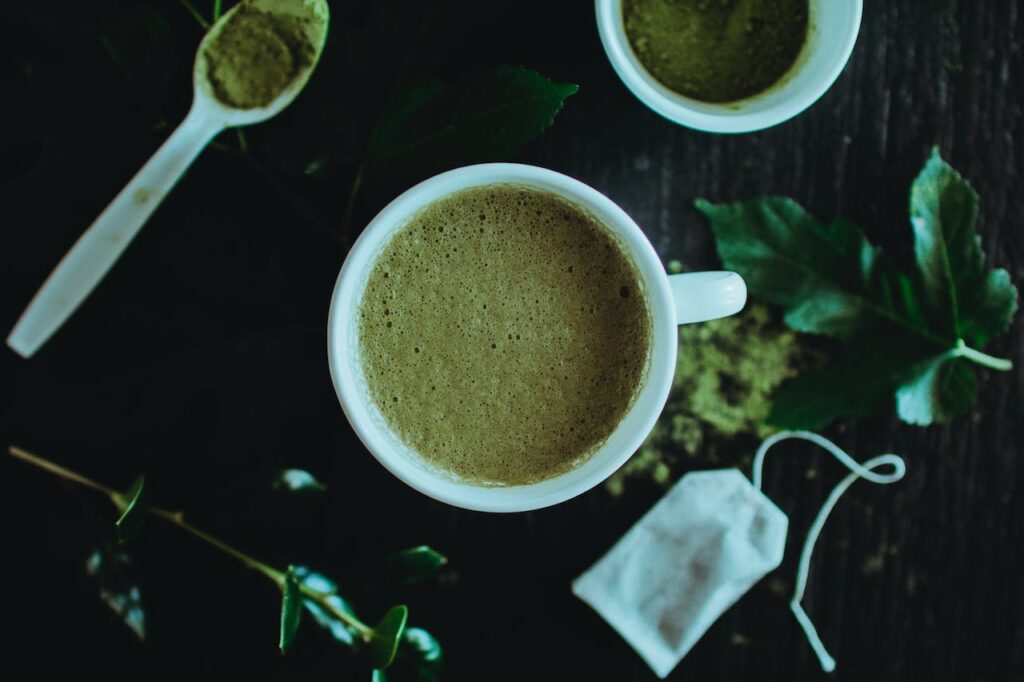Discover the nuances of Matcha tea in this comprehensive article, comparing its unique qualities to other traditional teas and coffees. Uncover the secrets of this vibrant green tea and make an informed choice for your daily brew.

Table of Contents
Comparing Matcha Tea to Traditional Green Tea
In the ever-expanding world of tea, two varieties stand out – Matcha and Traditional Green Tea. Each comes with its unique characteristics, flavors, and cultural significance. Let’s dive into a comprehensive comparison to help you make an informed choice based on your preferences and lifestyle.
Introduction
In a market saturated with choices, the clash between Matcha Tea, traditional teas, and coffee is a testament to the diverse preferences of tea and coffee enthusiasts. Understanding the nuances of these beverages can help you navigate the vast landscape and choose a cup that resonates with your taste buds and lifestyle.
Matcha Tea: The Green Contender
Matcha Tea, a powdered green tea originating from Japan, has surged in popularity for its vibrant color, rich flavor, and unique preparation method. The shade-grown tea leaves are meticulously ground into a fine powder, creating a concentrated and versatile base for a range of beverages and culinary delights.
Characteristics of Matcha
Known for its rich, umami flavor, Matcha offers a unique taste experience. The vibrant green color reflects its high chlorophyll content, while the powdered form makes it a versatile ingredient in both beverages and culinary delights. Additionally, Matcha boasts nutritional benefits, including antioxidants and amino acids.
Traditional Teas: Embracing Diversity
Traditional teas, encompassing varieties like black tea, green tea, oolong, and herbal teas, have long been staples in diverse cultures. Each type boasts distinct flavors, aromas, and health benefits. From the briskness of black tea to the grassy notes of green tea, traditional teas offer a wide spectrum of choices.
Coffee: The Global Favorite
Coffee, derived from roasted coffee beans, has established itself as a global favorite. With its rich aroma and bold flavors, coffee has become a daily ritual for millions worldwide. The myriad of coffee beans, roasting techniques, and brewing methods contribute to an extensive array of taste experiences.
Taste and Aroma
Matcha Tea presents a unique taste characterized by an earthy, umami flavor with a hint of sweetness. Its vibrant green color adds to the visual appeal. Traditional teas, depending on the type, offer a diverse range of tastes – from the robustness of black tea to the delicate notes of white tea. Coffee, with its aromatic richness, spans from fruity and floral to nutty and chocolatey undertones.
Caffeine Content
In the caffeine arena, Matcha falls between traditional teas and coffee. It provides a moderate caffeine boost, balanced by the presence of L-theanine, offering a calm and focused energy. Traditional teas vary in caffeine content, with black tea generally having higher levels, while coffee typically leads the caffeine race.
Health Benefits
Matcha takes the spotlight with its high antioxidant content, promoting overall well-being. The combination of catechins and L-theanine contributes to improved focus and relaxation. Traditional teas, depending on type, offer various health benefits, including heart health and immune support. Coffee, too, is linked to improved mental alertness and antioxidant properties.
Rituals and Culture
Matcha Tea has deep cultural roots, especially in Japanese tea ceremonies, emphasizing tradition, respect, and tranquility. Traditional teas, woven into the fabric of various cultures, carry their own ceremonial significance. Coffee, while lacking the same formal rituals, has become a symbol of socialization and work breaks globally.
Preparation Methods
The preparation of Matcha Tea involves a ceremonial whisking process, creating a frothy texture. Traditional teas, depending on the type, may require steeping in hot water for varying durations. Coffee, brewed through methods like drip, espresso, or French press, offers a customizable brewing experience.
Versatility in Culinary Use
Matcha Tea stands out for its versatility in culinary applications, adding a unique flavor and color to everything from lattes to desserts. Traditional teas, too, find their way into culinary creations, infusing recipes with nuanced tastes. Coffee’s versatility extends to cooking and baking, where it enhances various dishes with its robust flavor.
Environmental Impact
Considering environmental sustainability, Matcha Tea production involves shade-grown plants, contributing to a lower carbon footprint. Traditional teas and coffee, depending on cultivation practices, can have varying environmental impacts. Sustainable practices are gaining prominence in the coffee industry.
Accessibility
All three contenders – Matcha Tea, traditional teas, and coffee – are widely accessible globally. The availability of specific types may vary based on region and local preferences, but enthusiasts can typically find their preferred brew with ease.
Consumer Preferences
The ultimate choice between Matcha Tea, traditional teas, and coffee often comes down to personal preference. Some may be drawn to the vibrant and ceremonial experience of Matcha, while others find comfort in the familiar rituals of traditional teas or the bold kick of their favorite coffee blend.
Conclusion
In the dynamic world of beverages, the competition between Matcha Tea, traditional teas, and coffee is a celebration of diversity. Whether you seek the calm energy of Matcha, the nuanced flavors of traditional teas, or the bold wake-up call of coffee, each option offers a unique and enriching experience.
FAQs (Frequently Asked Questions)
- Which has more caffeine, Matcha Tea, or Coffee?
- Coffee generally contains more caffeine than Matcha Tea.
- Can Matcha Tea be used in cooking like Coffee?
- Yes, Matcha Tea’s powdered form makes it a versatile ingredient in various recipes, similar to coffee.
- Do traditional teas have different caffeine levels?
- Yes, traditional teas vary in caffeine content. Black tea generally has higher caffeine levels compared to green, white, or herbal teas.
- Are there health risks associated with consuming Matcha Tea, traditional teas, or coffee?
- While each has health benefits, moderation is key. Excessive caffeine intake may lead to side effects, so it’s essential to enjoy these beverages in moderation.
- How do environmental practices vary in Matcha Tea, traditional teas, and coffee production?
- Matcha Tea production often involves shade-grown plants, contributing to lower environmental impact. Sustainable practices are gaining prominence in the coffee industry. Traditional teas’ impact varies based on cultivation methods.
More on Health & Wellness:
Uncovering the Truth about the Mediterranean Diet: Benefits and Drawbacks Discussed
10 Keto Recipes for Weight Loss: Enjoy Delicious Meals and Reach Your Goals
Edible Oils Exposed: Unveiling the Best and Worst Choices for Your Well-being
Healthy and Tasty Smoothies for Your Weight Loss Journey: 10 Recipes to Try Now


